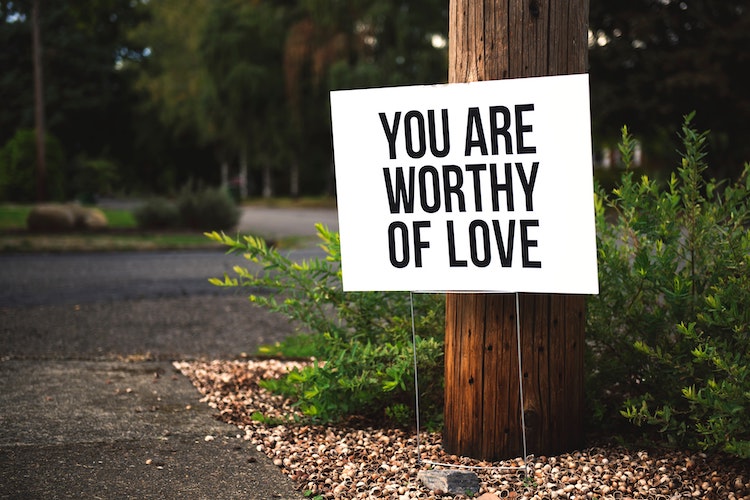
If you’ve ever wondered how a therapist changes how you feel about life, I’m here to help.
I used to wonder what therapy would be like, if it’s helpful, or whether short-term therapy can help you. But I’m Northern and naturally quite self-contained so I never imagined I’d find out.
But things happen. I only saw my therapist for a short time. After a couple of months, she said, “Of course there are two sides to every story but there’s also usually someone who is right, and you are right.”
That seemed like a natural break point!
Anyway.
What I learned is that therapists can really change how you look at life. And how you feel. It doesn’t need to last for months or years, but it can be a useful way to speak to someone and learn strategies to help you understand, move on, or adopt to changes in your life.
Here are five ways that my therapist changed the way I feel about life.
A therapist provides an ‘outside’ view
I never thought much about counselling until I found myself in conflict with part of my family. As a result we’d lost contact with several people who had previously been a regular part of our lives.
In some ways, it shouldn’t have been a big deal. There’s a big age gap between me and my sibling, we hadn’t grown up together, they weren’t necessarily a big part of our lives. But after a year, I had to admit that I was really struggling.
The conflict had brought up a lot of tough feelings around my adoption. Then I found out that my birth mother had died. It was the kick up the behind I needed to take action and I decided to get help from a local therapist.
I learned that therapy isn’t about someone telling you stuff. Mostly they ask questions that help you look at the situation in different ways. My therapist said things like:
- What wouldn’t you change about yourself, even if you could?
- Why do you think that person made the choice to maintain this conflict?
- If you could wave a wand and make things better, what would you like to change?
These were questions that encouraged me to think. About how my personality shaped the situation I was in, and how other people’s personalities did the same thing. Sometimes, just explaining a situation to someone else – who doesn’t have any emotional involvement – helps you to understand it better.
A therapist doesn’t care if you say the “right” thing
The therapist was also great at encouraging me to be LESS polite and reasonable.
Often when we have issues in our lives, we try to say the ‘right’ thing and make people feel better. Having an external ear in a therapist means you don’t need to do that. My therapist often said, “This is a space where you can vent. Your feelings are just as valid and important as anyone else’s.”
Let’s face it. Sometimes we’re just incredibly pissed off. We think they’re mean and unfair and stupid. But we don’t say those things out loud because we’re adults and we’re trying to be reasonable. Turns out sometimes it’s very therapeutic to just have a good old vent!


I’m a worthwhile person and so are you
One of the first things my therapist asked was, “What wouldn’t you change about yourself, even if you could?”
Like many of us, I don’t always speak to myself with the kindness I’d offer a friend.
I’m a procrastinator. I’m so stupid. I’m so bad with people. When I’ve had difficult situations in life, like many people, I blame myself. If I wasn’t so X or Y or Z then this wouldn’t have happened to me.
Rather than trying to think what I like about myself, asking what I wouldn’t change was a game changer. It made me think about what are the things that I identify as being important parts of my identity. I came up with things like – I work hard. I’m quick to laugh. I’m willing to take risks and find new adventures. If I fall down, I pick myself up and try again. I’m honest.
Talking about this really helped me to see that our value isn’t defined only by other people. Even if someone else doesn’t value you all the time, it’s still important to value yourself. Therapy helped me to remember that I bring good things to the world.


Your family doesn’t decide your value
All families are complicated. Mine because there’s fostering and adoption and estrangement and addiction and abuse… a host of events that shaped who we are, and how we relate.
Take being adopted – I’m needy. I like to feel I’m wanted. All the time. For most of my life, I felt it was more important that my family approved of me than that I approved of myself. I think lots of people have versions of this story, for all sorts of different reasons.
Therapy reminded me that ALL families are complicated and messy. Some of us simply can’t have healthy, positive relationships with people we happen to be related to. That does NOT take away the fact that you’re a good person who brings good things to the world.
Related to this, my therapist said something that I think is helpful: “If you are living in a way that is true to your core values, and reflects the things about yourself that you don’t want to change, does it really matter if someone else doesn’t agree with them?”
Which is a fancy way of saying if I’m independent and I like that I’m independent and someone falls out with me because I’m independent – should I want to change myself so they’ll like me more? Of course not!
Equally, I don’t think it’s helpful to demonise people who don’t like you. They’re not terrible people because they don’t like you. We’ve all lived different experiences that shape our values and personalities, and some people’s values will be so different to yours that it’s hard to be close. It’s not that anyone is wrong or right, or good or bad. You’re just looking at the world through different windows.


It’s probably not about you
I think a lot of us spend a lot of time imagining that stuff is about us, when it probably isn’t.
When my relationship with one person in my life broke down, I was inclined to think I must be a terrible person for them to think I’m fundamentally worthless. God, they must think I’m the worst person alive.
My therapist said, “Is that realistic? That someone could know you for 40 years and genuinely think you’re terrible? Because I think they know you, and they know very well that you wouldn’t hurt someone intentionally.”
Isn’t that interesting?
Sometimes, situations and reactions and people don’t make sense to us because the situation is about something bigger than just us.
Maybe you did disappoint or hurt or offend someone. Maybe they are angry or disappointed or embarrassed or any of a hundred different emotions. Some of that might be down to what you said or did, specifically.
But some of it might be about other things going on in that person’s life. For example:
- Could this person be using this opportunity to express anger they feel over a long-standing resentment they haven’t felt able to express before?
- Did creating a big conflict distract someone from difficult issues in their own life?
- Is creating a situation where you’re the “bad guy” helping someone to feel better about ways they might feel that they themselves are failing?
- Could this person enjoy being a victim or having conflict, because it means people around them offer sympathy and attention they crave?
- Perhaps what you said or did hit on something that person feels vulnerable about, and they’re over reacting out of pain?
You can never know for sure WHY someone is choosing this situation. But here’s what you can know: If there’s a conflict and you’ve tried to resolve it but the other person has refused, it’s no longer about you.
You don’t have to fix everything
What my therapist helped me to see, just through asking questions about me and my situation, was that it’s okay to be sad about a person who is no longer in your life. It’s okay to wish you could turn the clock back. It’s normal to miss happier, easier times.
But there are three things I need to remember:
- That person might come around one day, they might not. I accept they have their own reasons for the choices they’ve made and those reasons are not my burden to carry.
- It’s okay to let go. It’s okay to move on from people who don’t love you. You are not for everyone, and everyone is not for you. And the world tells us that doesn’t apply to families, but honey, it absolutely does. Go find people who love you. Because that is the very, very least any of us deserve.
- Complicated, painful and broken families are normal. I promise. Virtually everyone you meet has a complicated family relationship. Don’t feel like yours is something to be ashamed of, or never spoken about.









I’ve been seeing a therapist for several years now. It’s an experience that is simultaneously comforting and uncomfortable. I’ve learned a lot from my therapist, especially in the early days, when the goal was to help me learn to communicate.
It sounds like therapy really helped.
I really need to make time to go too. Thank you for sharing.
It seems like therapy can really impact positively. There are a lot of things, we want to discuss with a person who can give us a correct direction and understand the situation rather than judge it.
This actually makes me want to take that first step, which is the biggest one!
I think the times are changing, getting therapy is what everyone needs nowadays, great points that you have shared, thank you!